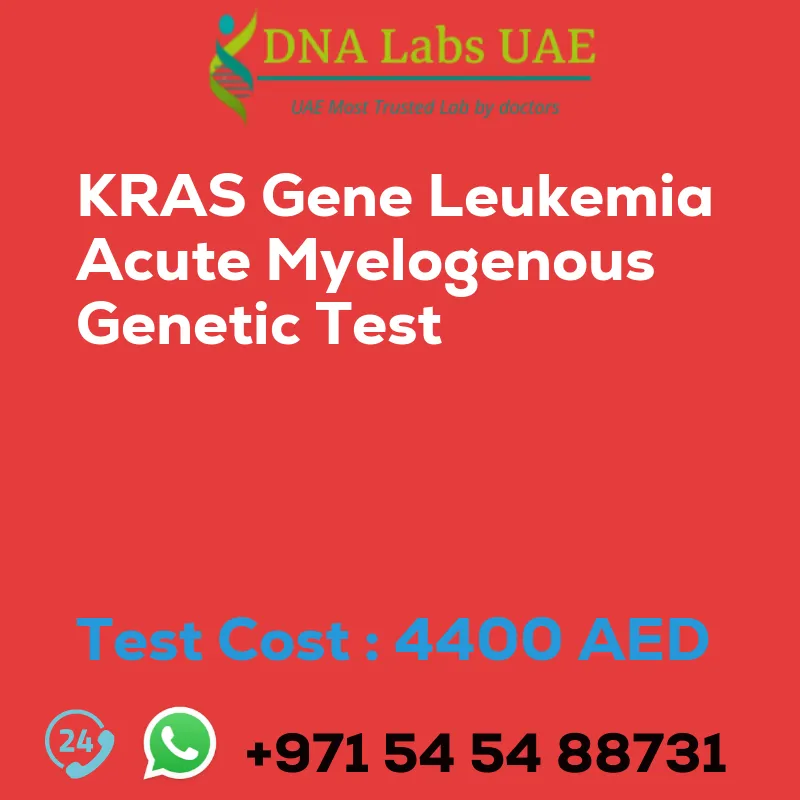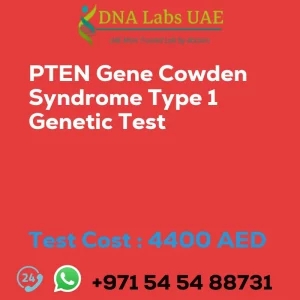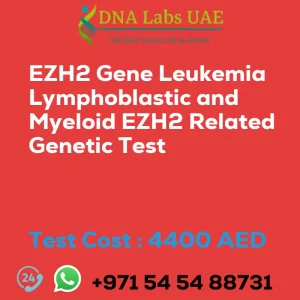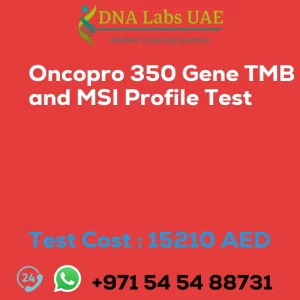KRAS Gene Leukemia Acute Myelogenous Genetic Test
Test Name: KRAS Gene Leukemia Acute Myelogenous Genetic Test
Components: Blood or Extracted DNA or One drop Blood on FTA Card
Price: 4400.0 AED
Report Delivery: 3 to 4 Weeks
Method: NGS Technology
Test Type: Cancer
Doctor: Oncologist
Test Department: Genetics
Pre Test Information: Clinical History of Patient who is going for KRAS Gene Leukemia, Acute Myelogenous NGS Genetic DNA Test. A Genetic Counselling session to draw a pedigree chart of family members affected with KRAS Gene Leukemia, Acute Myelogenous NGS Genetic DNA Test gene KRAS.
Test Details: The KRAS gene is a well-known oncogene that plays a role in the development and progression of various cancers, including acute myelogenous leukemia (AML). AML is a type of blood cancer that affects the bone marrow and results in the rapid growth of abnormal white blood cells. Next-generation sequencing (NGS) is a high-throughput sequencing technology that allows for the analysis of multiple genes simultaneously. In the context of genetic testing for AML, NGS can be used to identify mutations or alterations in the KRAS gene, as well as other genes associated with the disease.
NGS genetic testing for KRAS gene mutations in AML can provide important information about the prognosis and treatment options for individuals with the disease. Certain KRAS mutations have been associated with poorer outcomes and resistance to certain therapies, while others may indicate potential sensitivity to targeted therapies. By identifying specific genetic alterations in the KRAS gene and other relevant genes, NGS testing can help guide treatment decisions, such as the use of targeted therapies or clinical trial enrollment. Additionally, this type of testing can provide valuable information for risk stratification and personalized medicine approaches in AML.
It is important to note that NGS genetic testing for AML is typically performed on a sample of bone marrow or blood cells. The sample is sequenced using NGS technology, and the resulting data is analyzed to identify any mutations or alterations in the KRAS gene and other relevant genes.
Overall, NGS genetic testing for KRAS gene mutations in AML can provide valuable information for the management and treatment of individuals with this type of leukemia. It can help guide treatment decisions and contribute to more personalized and targeted approaches in the field of oncology.
| Test Name | KRAS Gene Leukemia acute myelogenous Genetic Test |
|---|---|
| Components | |
| Price | 4400.0 AED |
| Sample Condition | Blood or Extracted DNA or One drop Blood on FTA Card |
| Report Delivery | 3 to 4 Weeks |
| Method | NGS Technology |
| Test type | Cancer |
| Doctor | Oncologist |
| Test Department: | Genetics |
| Pre Test Information | Clinical History of Patient who is going for KRAS Gene Leukemia, acute myelogenous NGS Genetic DNA Test. A Genetic Counselling session to draw a pedigree chart of family members affected with KRAS Gene Leukemia, acute myelogenous NGS Genetic DNA Test gene KRAS |
| Test Details |
The KRAS gene is a well-known oncogene that plays a role in the development and progression of various cancers, including acute myelogenous leukemia (AML). AML is a type of blood cancer that affects the bone marrow and results in the rapid growth of abnormal white blood cells. Next-generation sequencing (NGS) is a high-throughput sequencing technology that allows for the analysis of multiple genes simultaneously. In the context of genetic testing for AML, NGS can be used to identify mutations or alterations in the KRAS gene, as well as other genes associated with the disease. NGS genetic testing for KRAS gene mutations in AML can provide important information about the prognosis and treatment options for individuals with the disease. Certain KRAS mutations have been associated with poorer outcomes and resistance to certain therapies, while others may indicate potential sensitivity to targeted therapies. By identifying specific genetic alterations in the KRAS gene and other relevant genes, NGS testing can help guide treatment decisions, such as the use of targeted therapies or clinical trial enrollment. Additionally, this type of testing can provide valuable information for risk stratification and personalized medicine approaches in AML. It is important to note that NGS genetic testing for AML is typically performed on a sample of bone marrow or blood cells. The sample is sequenced using NGS technology, and the resulting data is analyzed to identify any mutations or alterations in the KRAS gene and other relevant genes. Overall, NGS genetic testing for KRAS gene mutations in AML can provide valuable information for the management and treatment of individuals with this type of leukemia. It can help guide treatment decisions and contribute to more personalized and targeted approaches in the field of oncology. |








